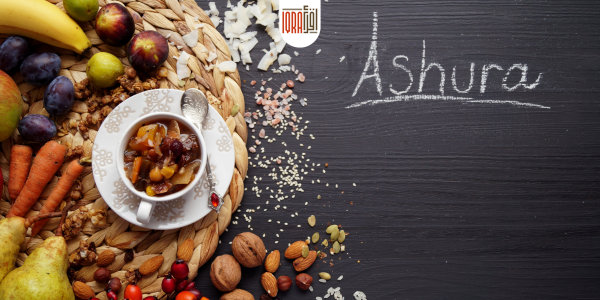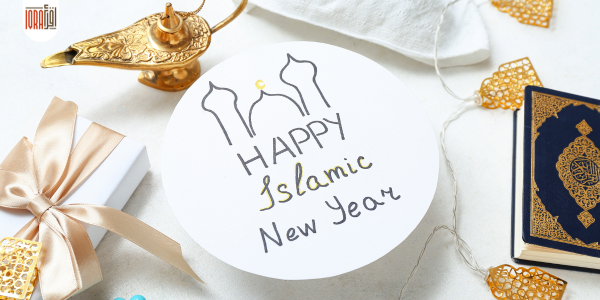The “Garden of Eden” stirs the imagination and touches the soul. It paints a picture of eternal peace and divine closeness. While many recognize it from the Biblical tradition, in Islam, the Garden of Eden takes on a deeply spiritual meaning connected directly to Jannah—the ultimate reward for the faithful. But what does this garden symbolize for Muslims? Why does it matter? And most importantly, what lessons can we draw from it to grow in faith and prepare for eternity?
This article dives deep into the Islamic view of the Garden of Eden, explaining its connection to paradise, human origin, and our purpose. Get ready to find hope, guidance, and motivation to walk the straight path—all rooted in the timeless teachings of Islam.
The Garden of Eden in Islam
In Islam, the Garden of Eden is often equated with Jannah, the eternal home promised to the believers. The Quran refers to it using various names, including Jannat Adn (Gardens of Eden), Dar al-Salam (Abode of Peace), and Jannat al-Firdaws (the Highest Paradise).
Unlike the Western view that sees Eden as a past location lost to humanity, Islam teaches that this garden exists beyond time. It is a place of return, not just origin. It’s where Adam and Hawwa (Eve) were first placed, and it’s where the righteous will go again—forever.
Allah says in the Quran:
“Indeed, those who have believed and done righteous deeds will have Gardens beneath which rivers flow. That is the great attainment.”
— [Quran 85:11]
This shows how Jannah is a reward, not just a myth or metaphor. It’s a real place—more real than anything on Earth.
Was the Garden of Eden on Earth or in Heaven?
This has long been a topic of discussion among scholars. Some say it was a heavenly garden outside Earth’s realm. Others believe it was a special Earthly location.
The stronger opinion among many scholars, like Ibn Kathir and Al-Ghazali, is that it was not on Earth. The garden was in the heavens—a dimension outside our worldly time and space. Adam and Hawwa were created there and then descended to Earth as part of Allah’s divine plan.
But the real focus isn’t where the garden was. It’s why they were placed there and what we must learn from their experience.
The Purpose Behind the Descent
Adam and Hawwa’s descent from Eden wasn’t a punishment. It was part of a divine script. Allah wanted humans to experience Earth, struggle, worship, and return to Him with greater wisdom and love than before.
He said,
“We said, ‘Go down from it, all of you. And when guidance comes to you from Me, whoever follows My guidance—there will be no fear concerning them, nor will they grieve’.”
— [Quran 2:38]
That’s hopeful, not hopeless. Earth is a test, but Jannah is the destination. The Garden of Eden is where the journey started—and by Allah’s mercy, where it can end.
Jannah: A Return to the Garden of Eden
For Muslims, Jannah is not a new concept. It’s a return to the purity and peace we were created in. It’s the final reward for staying firm in faith, doing good, and repenting for mistakes.
The Prophet Muhammad ﷺ said:
“Allah has prepared for His righteous servants what no eye has seen, no ear has heard, and no human heart has ever imagined.”
— [Sahih al-Bukhari and Muslim]
Every hardship we go through is worth it because the garden waiting for us is beyond imagination. It’s not just about palaces and rivers. It’s about meeting Allah. It’s about being free from pain, sadness, and death.
Descriptions of the Garden in the Quran
The Quran offers vivid images of Jannah:
- Rivers of milk and honey
- Gardens with shade and fruits
- Thrones and silk garments
- Eternal companions
- The greatest gift: Seeing Allah
It’s not just physical luxury. It’s spiritual bliss. The garden is a symbol of ultimate peace and fulfillment.
Lessons from Adam in the Garden of Eden
The story of Adam teaches us four deep lessons:
- Temptation is real, but so is forgiveness
- Shaytan (Satan) is our open enemy
- Allah is Merciful beyond measure
- Dignity comes from obedience, not pride
When Adam erred, he didn’t despair. He turned to Allah with sincere regret. This is the attitude we need today.
The Garden and the Test of Life
Life is a test of patience, gratitude, humility, and effort. The Garden of Eden reminds us that the end goal is not dunya (worldly life), but akhirah (the hereafter).
This test isn’t meant to break us. It’s meant to build us into souls worthy of returning to that sacred garden.
Women and the Garden: Restoring the Narrative
Some mistakenly blame Hawwa for the fall. Islam rejects this completely.
Both Adam and Hawwa were equally tempted. Both were equally forgiven.
“But Satan caused them to slip out of it and removed them from that [condition] in which they had been…”
— [Quran 2:36]
Islam honors women. Hawwa’s role in Eden was not one of guilt, but of humanity. She, like Adam, was tested. And she, like him, was forgiven.
Building Your Own Path to Jannah
Here’s how to walk the path back to the Garden:
- Daily salah (prayer)
- Quran with reflection
- Charity, even small
- Forgiving others
- Seeking knowledge and spreading good
Enroll in Islamic programs that elevate your faith. Sign up for IQRA Network’s courses here or explore our online classes designed to connect your heart to Allah and help you walk the straight path.
What Awaits Us in the Garden of Eden
The most beautiful promise? You won’t just live in peace. You’ll never feel sadness again.
- No aging.
- No illness.
- No stress.
- Just peace. Eternal joy. And nearness to Allah.
This World Is Not Our Home
We often get distracted by money, fame, and success. But the real success is returning to the Garden of Eden—to the presence of Allah.
So don’t let dunya fool you. Remember your roots, and aim for your return.
FAQs
Is the Garden of Eden the same as Paradise in Islam?
Yes. In Islamic theology, the Garden of Eden (Jannat Adn) refers to a part of Paradise.
Was Adam punished for eating the fruit?
No. His descent to Earth was part of Allah’s plan, not a punishment. He was forgiven.
Will we recognize each other in Jannah?
Yes. Allah will reunite families and friends who believed in and supported one another.
Do all Muslims go to the Garden of Eden?
Those who sincerely believe, strive for good, and seek forgiveness will, by Allah’s mercy.
Is Jannah only for men?
Absolutely not. Jannah is for all believing men and women equally.
How can I prepare myself for Jannah?
Live with taqwa (God-consciousness), perform daily obligations, and continuously seek forgiveness.
Conclusion
The Garden of Eden is more than a story. It’s a reminder of our origin, our mission, and our destiny. It shows that Allah’s mercy is greater than our sins. It invites us to return—not just to a place, but to our purpose.
So walk with hope. Pray with purpose. And strive with sincerity because the gates of the garden are wide open for those who seek Allah with truth in their hearts.
Join the movement toward spiritual growth and divine success. Sign up now with IQRA Network and unlock the path that leads back to the garden of light.





0 Comments
Oops comments are disabled